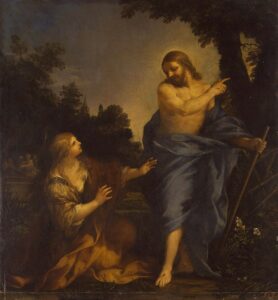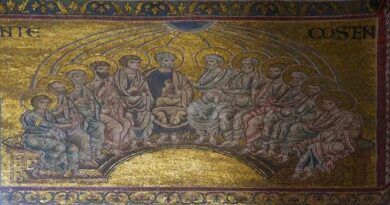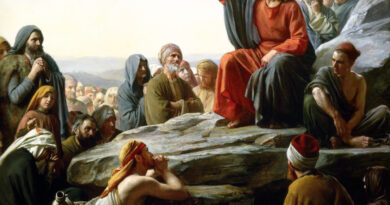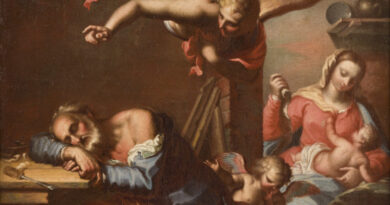Twenty-First Sunday of Ordinary Time/B

In today’s Gospel (John 6:60-69), many of the people who followed Jesus perceive his Word as ‘hard’ and decide to turn back and no longer go with him. In those people, there is often each one of us. In fact, there are situations, experiences, relationships that we perceive as ‘hard’, that hurt us and that put us in a position to take a step back, to leave. But, if we go deeper, we have to recognise that those situations, experiences, relationships that we perceive as ‘hard’, that hurt us, although objectively seem to be such, substantially they touch, solicit realities of our life that are unresolved, unplaced. They touch our need to be loved, to be recognised, they re-propose unresolved relationships in our family – with our father, our mother -, they stir up our unplaced ancestral relationships and provoke reactions such as anger, flight, closure, despair, violence, the same reactions we had when we were children. The Lord waits for us in our “unresolved areas”, as he waited for Peter with his fears, with his insecurities, with everything that, in an unhealthy, guilt-ridden logic far removed from reality, did not make him ‘worthy’ of being the first Pope of the Church. It is with the Lord that we become able to go ‘beyond’ our reactions, ‘beyond’ what we perceive to be ‘hard’, beyond what hurts us, going through it, accepting it and allowing ourselves to be healed by Him. Then like Peter we will be able – despite the discomfort, the pain and the desire to react – to say ‘Lord, to whom shall we go? You have words of eternal life and we have believed and known that you are the Holy One of God’.
The Offertory Antiphon of today’s celebration is taken from Psalm 39 (Ps 39, 2.3.4) with the following text:
“Exspectans exspectavi Dominum, et respexit me;
et exaudivit deprecationem meam
et immisit in os meum canticum novum,
hymnum Deo nostro.”
(With expectation I have waited for the Lord,
and he has cast his look upon me;
he has heard my supplication
and he has put a new canticle into my mouth, a song to our God)
The attached music is by Orlando di Lasso (1532-1594), and comes from the ‘Magnum Opus Musicum’ published in Munich in 1604 (Orlandi de Lasso, Magnum Opus Musicum [Monachii, ex typographia Nicolai Henrici, 1604]). The interpretation is by the Victoria Jakarta Chapel.
A blessed Sunday and heartfelt greetings.
Massimo Palombella


